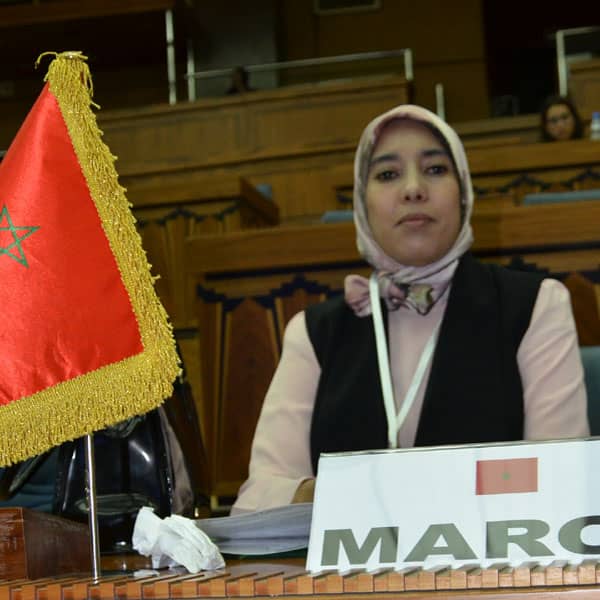Rabat, New York
The President should guarantee the proper functioning of democratic institutions and safeguards human rights. The separation of powers is an essential principle of democracy, which translates into the prohibition of the Executive Branch to infringe upon the prerogatives of the Legislative and Judiciary Branches. The suspension of the Assembly of the People's Representatives and removal of parliamentary immunity of its members set a dangerous precedent for the country and the region.Hon. Amina Maelainine, Member of Parliament (Morocco),PGA Board Member
On 25 July 2021, president Kaïs Saïed announced that he would be implementing extraordinary measures, including the dismissal of Prime Minister Hichem Mechichi and other high-level officials, the suspension of parliament for thirty days with a possibility to extend such suspension, the lifting of parliamentary immunity and taking over the supervision of the Office of Public Prosecution.
These measures concentrate power in the hands of the president who deemed his actions necessary to tackle the consequential political crisis and relied on article 80 of the Constitution of 2014, although the article clearly states that parliament “shall be deemed to be in a state of continuous session”. On 26 July 2021, military forces did not allow members of the parliament to enter parliament premises, including its president, Rachid Ghannouchi, and raids were carried out by the police in the Al Jazeera office in Tunis without proper legal documents.
These maneuvers by the president take place after violent protests erupted in Tunisian cities due to the government’s mismanagement of the COVID-19 pandemic and the dire economic difficulties. Additionally, the pandemic has exacerbated the political turmoil and since the 2011 revolution named the Arab spring, Tunisia has had 10 governments.
Mr. Saïed, a former constitutional law professor with no political experience – elected two years ago with 73% of the vote – helped draft Tunisia’s 2014 Constitution.Although the constitution allows for the president to take measures which are necessary to deal with exceptional circumstances – “imminent danger threatening the nation’s institutions or the security or independence of the country” – article 80 also limits the framework of presidential action through checks and balances. For instance, consulting with the Head of Government and the Speaker of Parliament and informing the president of the Constitutional Court is prescribed. Commentators observe that the broad scope of measures taken may be unconstitutional.
The organ that would have been the appropriate authority to decide on the constitutionality of the measures and protect fundamental human rights, the Constitutional Court, has never been put in place. Consequently, there is a lack of legal and constitutional accountability of the actions of President Saïed. Furthermore, the suspension of parliament is interpreted by some as a coup to the political party Ennahda, as its members constitute the biggest block in parliament. The Speaker of parliament, Rached Ghannouchi, also denounced the president’s measures as an “attempted coup against the Constitution and the democratic revolution” and an assault on democratic values.
PGA urges Tunisian authorities to respect democratic principles and restore the democratic order. Respect for judicial independence, human rights and civil and political rights, and the separation of powers, are fundamental to the Rule of Law. The rights of legislators must be respected, as they hold the Executive branch accountable and ensure that the institutional framework guarantees the protection of human rights. Journalists should be free to investigate and inform the population without fear of persecution and intimidation.
As the only democracy to emerge from the Arab spring protests that toppled dictators in the region, it is paramount that all Tunisian institutions including parliament be strengthened to achieve a more prosperous, democratic, inclusive, and peaceful society.

